No diets, no dramas
Why new year diet goals are destined to fail and 5-minute kimchi fried rice.
Hey! I’m Dina, a registered Nutritionist, I chat about realistic healthy living for diverse bodies, with monthly 5-minute meals and delicious discoveries. If you’re new here, you can read more about what to expect on the D-List.
Last week at the doctor’s surgery, my GP asked me ‘How do I lose weight?’, when she discovered I was a nutritionist. I answered with the annoyingly predictable nutritionist response ‘It depends’.
It depends because every body functions differently and I knew nothing about her body. Also, I felt uneasy giving a GP advice, but I guess they are a classic case of being ‘too busy to soak their nuts’. Burnt out, time-poor, and looking for a quick fix.
The questions continued beyond the 8-minute window and I left feeling inspired to write this post. I get these questions a lot, especially at this time of year, once the New Year motivation has fizzled out. So I’m kicking off this newsletter with some nutrition basics - my thoughts on diets, the difference between nutrition and dieting, and why mother nature knows best.
How do I lose weight?
It depends. There are so many factors that impact our body composition – hormones, gut health, sleep, stress, thyroid function, genetics etc. That’s why a personalised approach is key. Calories are just one part of a big picture. The human body is far too complex for a simple ‘calories in, calories out’ calculation. If it was that simple, weight loss would be a breeze.
What is the best diet?
There is no blanket advice that suits everyone and certainly no ‘good’ diet. Our organs, hormones and body systems all play an important role in food metabolism and appetite, and they all need nourishment to function. Depriving ourselves doesn’t help.
But I should cut out carbs, right?
No way man. Carbs are not the enemy. They are important for energy and fuel for our brains, especially complex carbs. Plus they taste good and make us happy!
What do you think of the shakes?
You can’t eat like that long term. Our bodies need variety, and there is no pleasure in drinking your food.
Why do I keep putting weight back on?
Restrictive short-term diets don’t address our long-term needs. Our bodies cleverly store backup reserves to protect us from starvation, hence the yo-yo weight gain. Plus undereating makes us sad and hungry, and more likely to raid the snack cupboard.
Do I have to completely change my lifestyle?
Absolutely not. Whatever your health goals, it has to be easy and enjoyable if it’s going to last. It has to work with your lifestyle, your family and your food culture. If I told an Arab not to eat rice, I would get a slipper launched at my head.
The conclusion is I think I made a friend. And it got me thinking about the blurred lines between nutrition and dieting and the reason I get asked about dieting more than I get asked about nourishment.
There is a common assumption that nutrition is the same as dieting - restrictive and hard work. Calorie counting, ‘clean’ food, no carbs, shakes and staying up to date with the latest trends is indeed hard work. No wonder New Year ‘health’ goals rarely last beyond February.
In my opinion, nutrition is the opposite of dieting:
Nutrition is what we put in, not what we leave out.
Nutrition fuels our hard-working body with the nourishment it deserves. Diets are image-conscious and don’t care about our health.
Nutrition is about enjoying the foods and their benefits gifted by Mother Nature. Diets make us fear food and create anxiety around eating.
Nutrition is abundant with a diverse range of foods. Diets create extreme limitations and favour clean tasteless foods.
Nutrition makes us feel well and energised. Dieting makes us weak and prevents us from doing what we love.
If we use nature as a guide, we are encouraged to eat a little bit of everything. A wide variety of different colours, flavours and health benefits are provided by Mother Nature, thriving seasonally to ensure we get diversity throughout the year. Cutting out entire food groups or obsessing over one hero food is not what nature intended. Mother Nature knows her stuff better than any celery-munching health ‘guru’.
By taking a personalised approach, weight or health goals can be achieved without dieting. Personalisation frees us from the stress of keeping up with changing trends. It allows us to listen to our bodies, focus on what works for us and enjoy the foods we grew up with. No diets, no dramas.
Our wellbeing is a life-long journey, not a punishing six-week transformation. We don’t have to do it all, right now, or in January. Slow, easy and enjoyable is more likely to last and become a part of our lifestyle.
On that note, here is your first 5-Minute Meal…
Simple recipes with minimal cooking and prep, when you can’t be arsed to cook.
Kimchi fried rice
This one-pan rice dish has just three main ingredients as a base, with optional extras. You can add pretty much anything, depending on what leftovers or rogue vegetables you have. The other great thing about this recipe is that kimchi is the star ingredient providing most of the flavour - so no need for additional spices.
Ingredients (serves 2)
250g bag of pre-cooked wholegrain rice
2 tbsp kimchi
½ cup frozen edamame beans
1 egg
A drizzle of sesame oil
Soy sauce (to taste)
Directions
Heat the oil in a pan over medium heat. Then add the frozen edamame beans (or any other frozen veg) and stir until thawed.
Add the rice, kimchi and any other leftover cooked vegetables or meat, and stir.
Push the rice mixture to one side of the pan and crack the egg into the other side. Whisk the egg, then combine with the rice once scrambled. Add a splash of soy sauce, serve and enjoy!
Swaps: Use peas if you don’t have edamame beans. Use olive oil if you don’t have sesame oil.
If you have more time: Add more vegetables (broccoli, spinach, sweetcorn), chicken or prawns.
Make it vegan: Leave out the egg. Check your kimchi label - some brands use fish sauce.
Baby-friendly: Dish up the eggy rice and veg for the babes before adding in the kimchi.
Things I eat, read and love.
Embracing convenience…
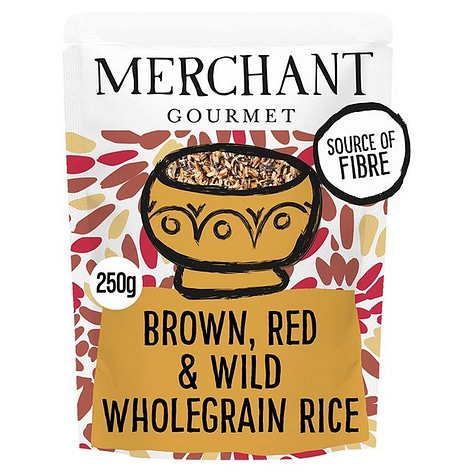
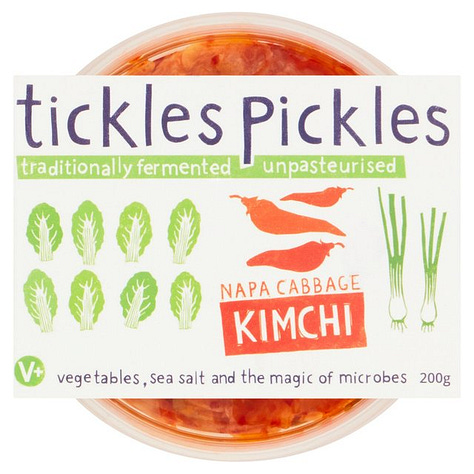
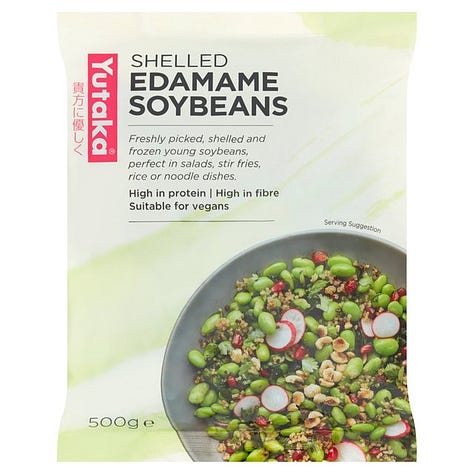
Used in the above recipe, I’m a big fan of pre-cooked rice and grains, and always have a stash in the cupboard when I’m too tired to cook.
Kimchi is packed with gut-friendly fermented goodness and is a quick way to add big flavour and razzmatazz to any average meal.
Protein-rich edamame beans in frozen form are so easy to throw into stir-fries and rich dishes.
For a more detailed explanation of why diets don’t work and how to lose weight without deprivation, check out Reframing Weight Loss by Mia Rigden Nutrition.
Horizontal Parenting: How to Entertain Your Kid While Lying Down. A modern parenting book with creative tips for overworked parents who "just need a minute", all while lying down. My kind of parenting!
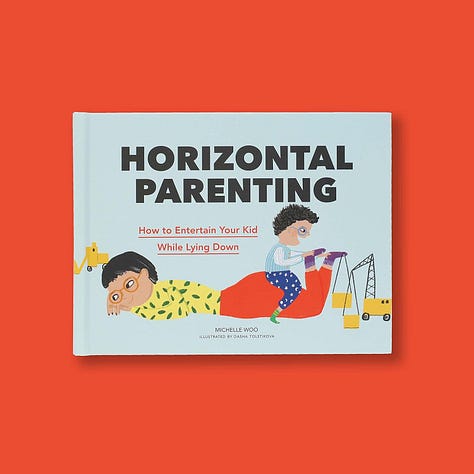
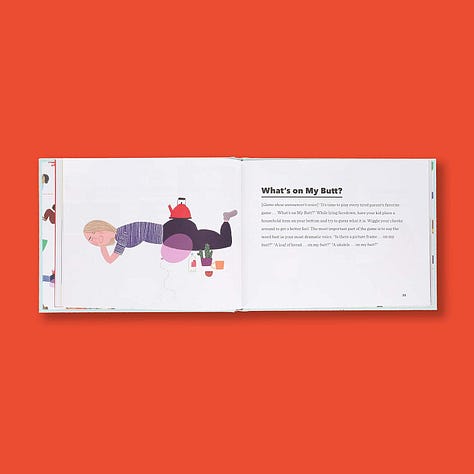
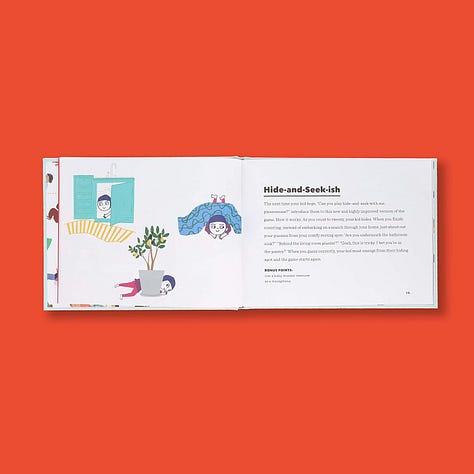
As always, let me know if there’s anything specific you’d like to hear about. I love hearing from you!
Everything here is free, but if you’d like to support my mission of making healthy living more accessible, please share, subscribe or upgrade. Your support is much appreciated ❤️




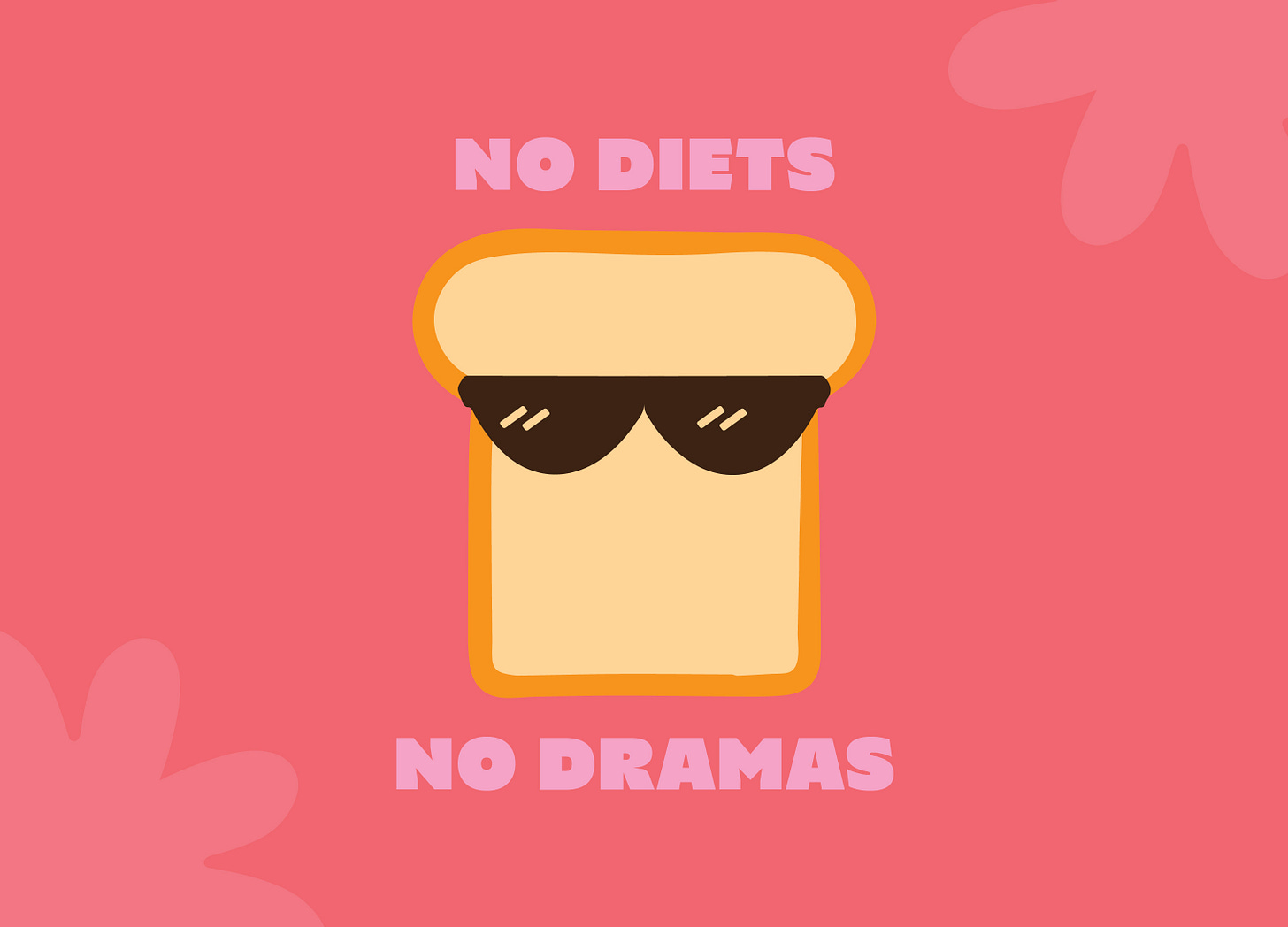



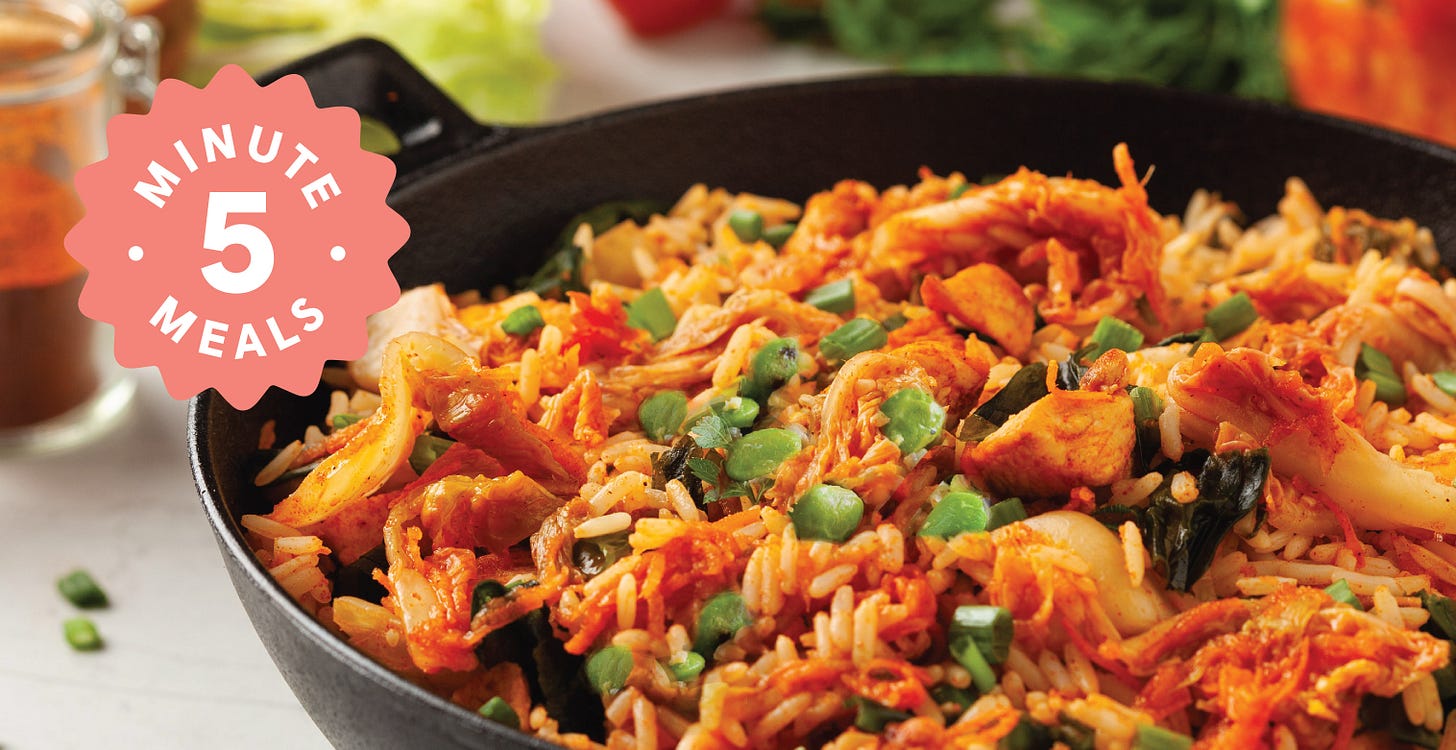


This fall when my doctor said I needed to lower my cholesterol I decided to really dive into the question of 'what can I ADD?' I knew that my diet was already pretty low in things like fried foods and red meat because they just aren't my favorites. So I told my family that I was focusing on me and they could either eat what I make or make their own food. And I've gotten busy adding more vegetables, more whole grains, etc. I am loving it. I actually just bought kimchi for the first time yesterday to experiment with adding some to a grain bowl, so I am excited to have another way to use it now!
In a similar vein, I'd be interested in reading more about what to do when your family is just really obstinate and has completely different tastes than you do. I still feel guilty about putting my own health first, because now they are relying on frozen pizzas. (I should add that my kids are all adult aged now.)
Eating the kimchi rice right now and it’s delicious. Thank you!